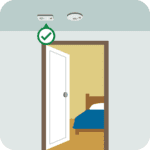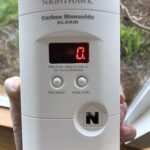Daylight saving time reminder about smoke and carbon monoxide alarms
The Seattle Fire Department would like to remind everyone to check on your smoke and carbon monoxide (CO) alarms for the start of daylight saving time this weekend (2 a.m. Sunday, March 10). We recommend carefully vacuuming around the alarms to remove dust and cobwebs and replace batteries if needed…. [ Keep reading ]



